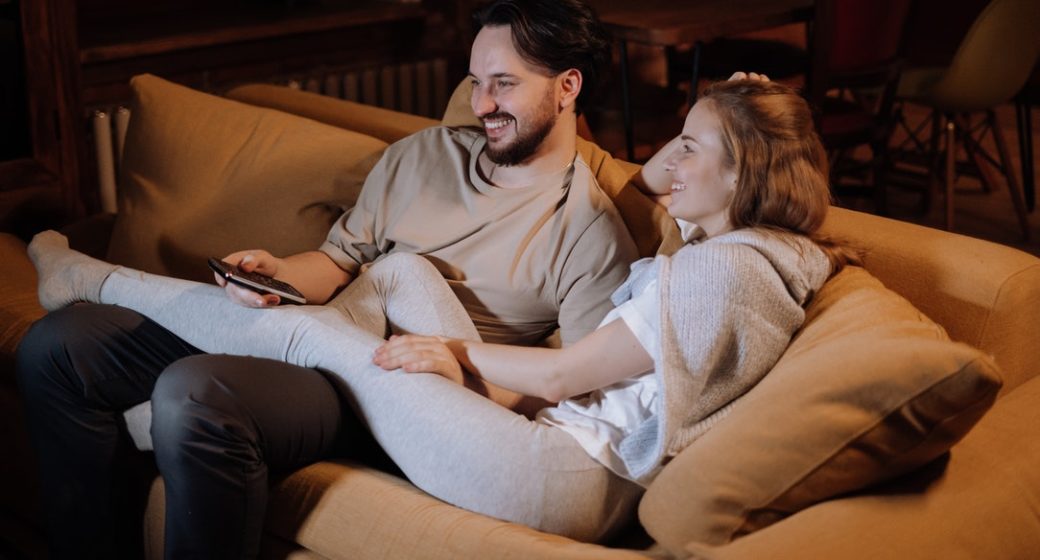
How to make your classroom accessible using the Phonak Roger Table Mic II
October 14, 2020
Deaf Community and Deaf Culture
October 16, 2020Love, Marriage & Hearing Loss

John and Julie Olson have been married for 46 years, and throughout that time they have worked to maintain their strength as a couple. They decided early on that they would not be limited by Julie’s progressive, bilateral hearing loss.
Hearing loss can cause feelings of isolation for one or both partners, but the Olsons have actively avoided that. “Early in our marriage…we sat down and talked about the fact that I am social and so is Julie,” says John. “Both of us agreed we would make it work. We win; hearing loss loses.” The couple shares how to live with someone who is hard of hearing, to the fullest.
Karen Sinclair, 55, acknowledges that hearing loss can cause frustration and create resentment in both partners. Also, letting negativity build can lead to significant problems.
“You have to learn patience,” says Sinclair, a paralegal from Kanata, Ontario.
Karen’s husband, Rick, who passed away in 2010, had bilateral hearing loss. His hearing was reduced to less than five percent in each ear before he received a cochlear implant (CI.)
Working to prevent frustration and communicating openly when it did occur helped both the Sinclairs and the Olsons maintain lasting, loving relationships. They used basic steps, which any couple can employ, to build and maintain strong marital relationships.
How to live with someone hard of hearing
Set Expectations; Educate Your Partner
When the Olsons came to understand the logistics of Julie’s hearing, the couple took a big step forward in their communication.
“A hard-of-hearing person may take up to five seconds to process the answer to a simple yes or no question,” says Julie Olson, 70.
She points to the fact that frequently, a hard-of-hearing person only catches a percentage of the words spoken, and has to extrapolate the rest of the meaning.
Read more: Hearing Loss Simulator: Understanding mild and moderate hearing loss
“That’s like light years to a hearing person, who is expecting an answer within a millisecond. They start saying things like ‘Never mind, it wasn’t important,’ which to us is a message that ‘we are not important.’ That may not be the intent, but that is what is mentally ingested.”
Instead of allowing this to happen, the couple made sure that John knew what to expect in their communication.
“Once we both accepted the reality that there is a cognitive delay in offering a response to a simple question, it helped,” says Olson.
When living with someone hard of hearing, partners should make sure each one understands the other’s capabilities. Karen Sinclair says that Rick, the partner with hearing loss, didn’t understand how much his wife could hear.
“He thought that hearing people could hear everything,” she remembers.
For example, when he was in the living room, Rick didn’t know that when she was running water in the kitchen sink, she couldn’t hear him. He called to her, but got no answer. He called again; no answer.
Ironically, says Karen, “he would get frustrated because I couldn’t hear him.”
Talking about this issue helped both partners understand each other’s perspective a little better.
Make a Plan
Planning ahead and discussing contingencies is an important part of setting expectations when living with someone hard of hearing. With hearing loss, otherwise “normal” situations can escalate to emergencies, and emergency situations can be terrifying.
Recalling her late husband’s hearing loss, Karen Sinclair describes an innocuous situation that could have been very unpleasant.
“We had this dog. He was a bit of a character,” she says. “I’d gone to take the garbage out, and he was barking and jumping and carrying on at the door, and he somehow managed to drop the latch.”
Locked out, Karen realized that Rick couldn’t hear her banging on the door or ringing the bell. Fortunately, they had exchanged house keys with a neighbor, and she was able to get in.
Karen had other concerns, too. “I would worry about the smoke detector,” she says. “It could go off and he wouldn’t hear it.”
And when Rick came home one day to find Karen unconscious, he was panicked. Fortunately, their son was home and could call 911 for Rick. It turned out Karen had had a seizure. The incident highlighted for the couple the need to anticipate how hearing loss can alter or prevent communication in an emergency.
Read more: 3 Ways to Prepare for an Emergency as a Deaf Person
Communicate About Communicating
Make sure your partner understands how you feel. Michael Smith, 55, who’d already been gradually suffering hearing loss in his right ear, lost all hearing in his left ear 17 years into his marriage with Mary. He felt incredibly frustrated by his family’s treatment of his hearing loss.
“The way my family dealt with my hearing loss was to ignore it,” says the father of five, who used to post information on the refrigerator about how his family could best communicate with him—to no avail. Smith wound up becoming isolated in social situations, even around the dinner table with his own children.
Smith went to counseling to deal with his feelings of resentment and its resulting depression, but the root problem, that of feeling isolated from his family, was never really solved. Instead, technology has given him back some hearing and he’s been able to return to social situations.
“I could again become an active member of the family, and I am having to become more assertive to let people know that it’s not OK to continue to ignore me like [they did] when I was severely hard of hearing,” says Smith.
“I could again become an active member of the family, and I am having to become more assertive to let people know that it’s not OK to continue to ignore me like [they did] when I was severely hard of hearing.”
Being ignored is incredibly painful. Over the 46 years of their marriage, John Olson has shared his wife’s pain when conversations have left her in the dark.
“The most difficult thing about this relationship is watching people talk around your hearing-impaired spouse,” says Olson. “You both know how much it hurts.”
Karen Sinclair understands completely. She says that her late husband, Rick, who was profoundly deaf for about 10 years prior to getting a CI, was relatively accepting of the inevitable moment when conversations would march on without him. While Rick was sanguine about it. However, Karen would “see red” when people were rude to her husband because of his hearing loss.
Communicating effectively with each other is the first step in resolving some of these issues. Educating others is next. John Olson says that the couple is clear with new acquaintances that Julie is hearing impaired.
“Openness is paramount to getting support from others,” agrees Julie, who is now an advocate for the hard of hearing. “When we choose to hide our hearing loss, people think we don’t care about them. And, most people think that hearing aids will bring back perfect hearing. We have to explain to them: That’s not reality.”
Take Joy
All relationships have bumps in the road, but the partners who can work through these issues together, and take something positive from them, are the most successful.
“Yes, I get frustrated, and we may bark at each other, but we usually end up laughing about it,” says Julie Olson.
Karen Sinclair remembers some of the little things about Rick’s hearing loss that made her laugh. One time, shortly after he’d gotten his cochlear implant, Rick called her via TTY at work and growled, “Don’t they ever stop?”
“What?” Karen asked, surprised and a little worried.
“The birds!” Rick replied. “I can’t stand it!”



